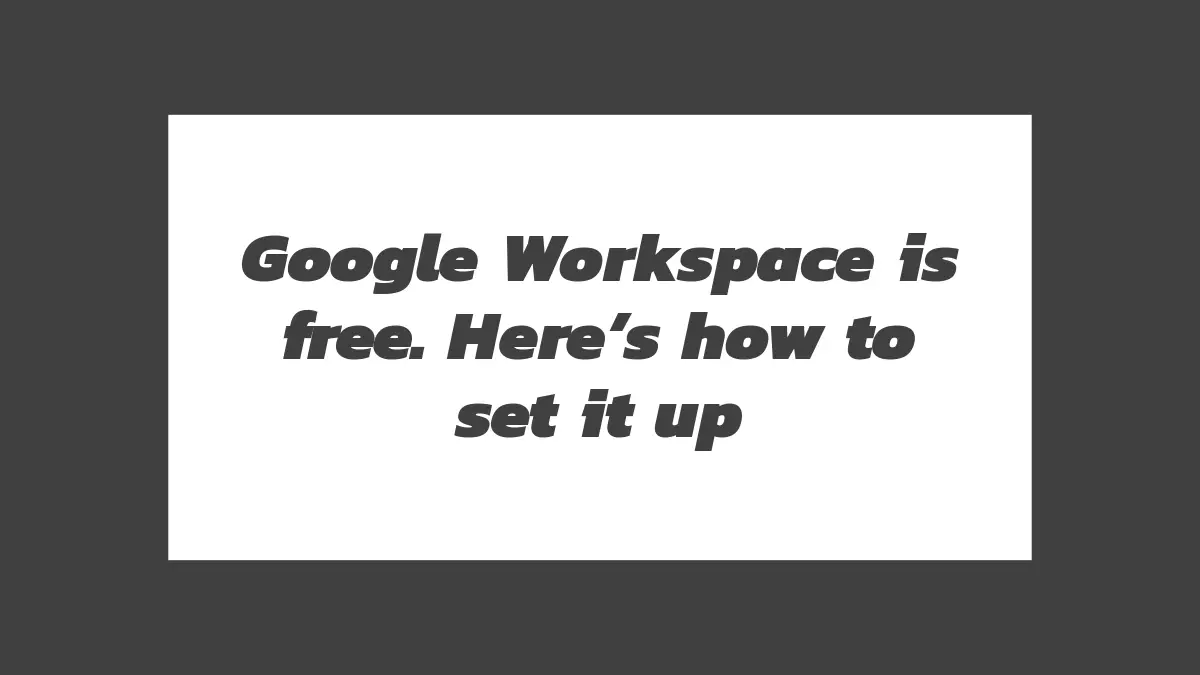In recent news, Google has introduced a new cloud-based tool called “Tables” as part of its suite of productivity products. Tables is designed to help businesses and teams organize and track their work, tasks, and data more efficiently. This new addition to Google’s cloud offerings aims to provide users with a versatile and collaborative solution for managing projects, workflows, and data in a user-friendly and intuitive manner.
Tables brings together the power of spreadsheets and databases, offering users a structured and organized environment to work with their data. It provides a range of features and functionalities that streamline processes and enhance productivity. Let’s explore some key aspects of Google’s Tables and how it can benefit users:
Collaborative Workspaces: Tables allows teams to create collaborative workspaces where members can collectively work on projects, tasks, and data. Multiple users can access and edit the same table simultaneously, making real-time collaboration seamless and efficient. This fosters teamwork and ensures that everyone is on the same page.
Customizable Views: With Tables, users can customize the views of their data to suit their specific needs. They can create different views, such as grid view, calendar view, or Kanban view, to visualize and interact with their data in the most effective way. This flexibility helps users gain insights and make informed decisions based on their data.
Automated Actions: Tables enables users to automate actions and tasks within their workflows. With built-in automation capabilities, users can set up rules and triggers to perform actions automatically, such as sending notifications, updating data, or generating reports. This saves time and reduces manual effort, allowing teams to focus on more important tasks.
Data Import and Export: Users can easily import data from various sources into Tables, including spreadsheets, CSV files, and Google Forms. This makes it convenient to migrate existing data or start working with data from external systems. Similarly, Tables allows users to export their data in different formats, ensuring compatibility and flexibility.
Advanced Filtering and Sorting: Tables offers powerful filtering and sorting options to help users analyze and organize their data. Users can apply complex filters and sort data based on specific criteria, making it easier to find relevant information and gain insights from large datasets. This functionality enhances data management and analysis capabilities.
Integrated Collaboration: Tables is seamlessly integrated with other Google Workspace tools, such as Google Drive, Google Docs, and Google Calendar. Users can embed files, documents, and calendar events within their tables, creating a centralized and connected workspace. This integration enhances collaboration and simplifies information sharing across different tools.
Mobile Access: Tables is available as a mobile app, allowing users to access and work on their tables from their smartphones and tablets. This ensures that teams can stay connected and productive even while on the go. The mobile app provides a consistent and optimized experience, enabling users to manage their work efficiently from anywhere.
Security and Data Protection: Google prioritizes the security and privacy of user data. Tables benefits from Google’s robust security infrastructure, including encryption, access controls, and regular security audits. Additionally, Tables allows users to set permissions and access levels for different team members, ensuring that sensitive data is protected and only accessible to authorized individuals.
Integration with Google Workspace Marketplace: Tables can be extended further through integration with third-party apps available in the Google Workspace Marketplace. Users can leverage a wide range of add-ons and extensions to enhance Tables’ capabilities and tailor it to their specific requirements.
In summary, Google’s Tables brings a powerful and collaborative tool for organizing and managing work, tasks, and data. With its customizable views, automation features, advanced filtering options, and seamless integration with other Google Workspace tools, Tables offers a comprehensive solution for teams and businesses.




